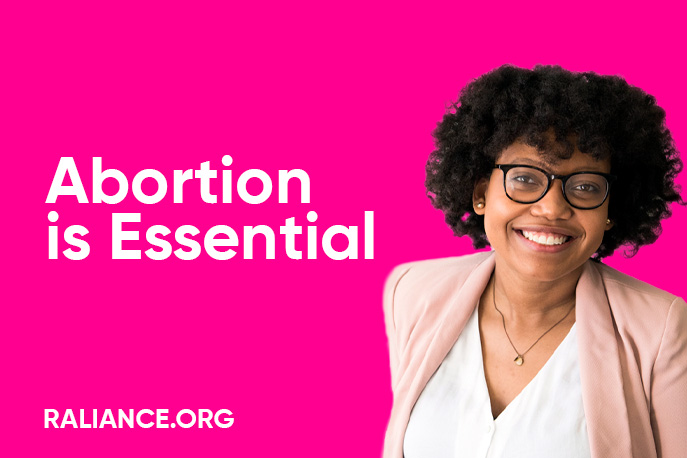The Supreme Court issued a ruling regarding reproductive care that will have massive impacts on people across the country. While abortion is likely to remain legal and accessible in a number of states, many states will ban some, most or all abortions. People across the country who prioritize bodily autonomy as a fundamental right, including the team here at RALIANCE, have been bracing for the SCOTUS decision that leaked earlier this year, overturning fifty years of precedent affirming the right to privacy and health care.
We’ve written recently about how it’s imperative for employers to be aware of how social issues impact their employees and workplaces and to take proactive steps toward building cultures that are safe, equitable, and respectful. Insufficient access to abortion care will dramatically and negatively impact employees’ current and future role in the workplace.
The Turnaway Study, conducted between 2010 – 2015 and published in 2020, was the first of its kind. Researchers kept track of and checked in with nearly 1,000 women participants over five years who either had or hadn’t been able to receive an abortion to learn about their life trajectories. The study found that women unable to receive an abortion were less likely to achieve their one-year goals and less likely to develop five-year plans.
The study’s findings are grim and have implications for the majority of the country’s workforce. In January 2020, women held just over half of all jobs nationwide. It’s reasonable to say that, without Roe v. Wade, the country would have benefited less from the massive contributions women have made to countless fields, including medicine, engineering, law, education, and technology.
There are steps employers should take to support employees in a post-Roe world, such as reimbursing employees for necessary travel to secure safe abortions. Employers can also take steps to ameliorate the “motherhood penalty,” which means closing the wage gap between men and women that can largely be attributed to giving birth. By offering a generous parental leave and ensuring wage parity with people who haven’t had children, employers can help make the workplace a better environment.
As we assess our new reality, there is so much to learn. RALIANCE will be sure to keep employers updated on best practices to build safe, equitable, and respectful cultures.
RALIANCE is a trusted adviser for organizations committed to building cultures that are safe, equitable, and respectful. RALIANCE offers unparalleled expertise in serving survivors of sexual harassment, misconduct, and abuse which drives our mission to help organizations across sectors create inclusive environments for all. For more information, please visit www.RALIANCE.org.

